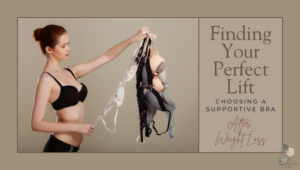
Meditation is one of the most popular practices in today’s modern world. With all of the distractions that we face daily, it can be challenging to unplug and spend time focusing on ourselves. However, engaging in meditation regularly can help us center ourselves and become more aware of what is going on around us. If you’re curious about what type of benefits you could experience from regularly practicing meditation, read on to learn more…
What is Meditation?
Meditation is the practice of focusing your mind on something specific so that your thoughts are not disturbed by external factors. You can practice meditation anytime, anywhere. While the practice of meditation might seem complicated at first glance, it’s quite simple.
When you meditate, you observe your thoughts and feelings without getting caught up in them. You can also practice relaxation techniques, control your breathing through breathwork therapy, and become more aware of your body while also lowering stress levels. Some people choose to meditate as part of spiritual practice, while others just want to improve their mental health and well-being.
Why Do People Meditate?
There are a variety of benefits that can come from practicing meditation, including improved mental awareness and increased focus. Practicing meditation can also help you deal with anxiety and depression, as well as improve your overall health.
Studies have found that people who regularly practice meditation report feeling less anxious, less stressed, and less mentally exhausted. Meditation can also help you become more patient and less likely to get stressed when faced with annoying or stressful situations. Meditation can also help you become more aware of your body and your surroundings, which can be helpful for those who are forgetful or who have trouble focusing.
How to Practice Meditation
When you’re ready to begin practicing meditation, you’ll need to determine what type of meditation you’d like to do. While there are a variety of different types of meditation that you can try, try to start with a type that you’re comfortable with and are familiar with. Find a place where you can be alone and undisturbed for about 20 minutes each day. Once you’ve found a place where you can easily practice meditation, you can begin with these steps:
- Find a comfortable seated position where you won’t be disturbed during your meditation session. It’s important to maintain a consistent posture throughout your session so that you don’t experience discomfort or distraction.
- Find a silent place where you won’t be interrupted while you’re practicing your meditation. You might also want to turn off your phone and avoid other forms of distraction.
- Choose a meditation technique that you’re comfortable with and are familiar with. There are a variety of different meditation techniques to choose from, depending on your preferences and needs.
- Once you’ve chosen a technique, begin to focus your attention on the technique as you’re practicing. Pay close attention to the technique and what you’re doing as you’re practicing.
- When you notice your thoughts, simply acknowledge them and then return your focus to the meditation technique again. You can also try to ignore your thoughts or try to focus only on your thoughts for a few moments before returning your focus to the technique again.
- When you notice that your attention has wandered from your meditation, simply acknowledge the distraction and return your focus to the meditation technique again.
- Repeat this process until your meditation session is completed.
5 Benefits of Practicing Meditation
- Improved Mental Awareness: Meditation can help you become more aware of your thoughts and feelings so that you can better understand them and handle them when needed.
- Better Self-Control: Practicing meditation can help you control your impulses and improve your patience. This can be particularly helpful for people with ADD/HD who often have trouble waiting for things like their turn at a table or in a line.
- Better Relationships: Meditation can help you become more accepting and tolerant of others, which can be helpful for people who often get frustrated or upset when they’re in close relationships with others.
- Better Health: Many studies suggest that practicing meditation can help you lower blood pressure, lower your risk of heart attack and stroke, lower stress levels, and improve your immune system.
- Happiness: Many people report that they are happier after they begin practicing meditation. This can be helpful for people who often feel lonely or isolated because they have poor mental health.
5 Things to Remember When Practicing Meditation
- Avoiding distractions: Avoiding distractions when you’re meditating is key so that you can maintain your focus on what you’re doing.
- Maintain a consistent posture: Maintaining a consistent posture while you’re practicing meditation can help you avoid distractions and maintain a steady focus.
- Get into a rhythm: You might find that it’s easier to practice meditation if you get into a rhythm where you start slowly and then increase your speed over time.
- Don’t compare: When practicing meditation, it’s important to avoid comparing yourself to others. Instead, focus on how you can improve your mental state and focus.
- Stay positive: It’s important to stay positive when you’re practicing meditation. This can help you avoid getting discouraged when you don’t achieve your goals.
Conclusion
Overall, meditation can help you to become more focused and aware of your surroundings while also lowering your stress levels and improving your mental health. Ready to try it out? There are a variety of resources available that can help you get started with meditation. If you’re new to meditation, it can be helpful to start with a basic technique that you’re comfortable with and that doesn’t require any special equipment. You can also read up on different types of meditation and choose one that seems like it would be most beneficial for you.


